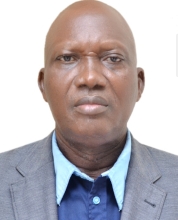
HEALTH TALK: Psychosocial health challenges of elderly people (Part 2)
By Suleiman Tajudeen
…Continued from last week
age, sex, and marital status can contribute to the psychosocial health challenges of the elderly in Nigeria.
Environmental factors: Environmental factors such as living conditions and access to healthcare services can contribute to the psychosocial health challenges of the elderly in Nigeria.
Economic factors: Economic factors such as income and employment status can contribute to the psychosocial health challenges of the elderly in Nigeria.
Changes in family dynamics
Nuclearization of families: The nuclearization of families has led to a decline in extended family support for the elderly.
Migration: Migration of younger family members to urban areas and overseas has led to a decline in caregiving support for the elderly.
Changing roles of women: Changing roles of women in society has led to a decline in traditional caregiving roles.
Increased life expectancy: Increased life expectancy has led to a greater need for caregiving support.
Urbanization: Urbanisation has led to a decline in traditional community support for the elderly.
Decline of traditional values: The decline of traditional values has led to a decline in respect and care for the elderly.
Increased burden on caregivers: The increased burden on caregivers has led to a decline in caregiving support.
Increase demand for health care services
Aging population: The aging population has led to an increase in demand for healthcare services.
Chronic diseases: The prevalence of chronic diseases has led to an increase in demand for healthcare services.
Mental health issues: The prevalence of mental health issues has led to an increase in demand for healthcare services.
Access to health care: Retirees must have access to affordable and quality healthcare services.
Mental/Physical health: Retirees must have easy access to medical health services.
Quality of life: Retirees should focus on their general quality of life such as satisfaction, physical and psychological health.
Lack of mental health services: Nigeria has a severe shortage of mental health services which can make it difficult for elderly people to access the care they need.
Inadequate healthcare infrastructure: The healthcare infrastructure in Nigeria is often inadequate which can make it difficult for elderly individuals to access basic healthcare services.
Limited access to medications: Limited access to medications is another healthcare factor that can affect the psychosocial health of the elderly in Nigeria. Those who cannot afford medications or have limited access to healthcare services may experience exacerbation of mental health issues .
Recommendations
Establish a national healthcare policy for the elderly: A comprehensive healthcare policy that addresses the unique needs of the elderly is essential for improving their health outcomes.
Increase funding for healthcare services: Increased funding for healthcare services is necessary to improve access to healthcare for the elderly, particularly in rural areas.
Promote community-based care: Community-based care can provide support for the elderly in their own homes, reducing the need for institutional care.
Educate caregivers: Educating caregivers on the unique needs of the elderly can improve the quality of care provided.
Address poverty and economic inequality: Addressing poverty and economic inequality can reduce the financial burden on the elderly and improve their overall wellbeing.
Promote social support: Promoting social support through community-based programs can reduce social isolation and improve mental health outcomes.
Conclusion
The elderly in Nigeria face unique psychosocial health challenges that affect their quality of life and overall health outcomes, hence the need for all hands to be on deck, to address these challenges commonly experienced by the elderly in Nigeria.
References:
World Health Organization. (2019). Ageing and health.
National Bureau of Statistics. (2020). Poverty and inequality in Nigeria.
International Labour Organization. (2020). Employment and unemployment in Nigeria.
Dr Suleiman Tajudeen is CEO & Director of Clinical Psychology, Clear Mind Psychological Consult, Km 15 Badagry Expressway, Ojo, Lagos State, Nigeria.






